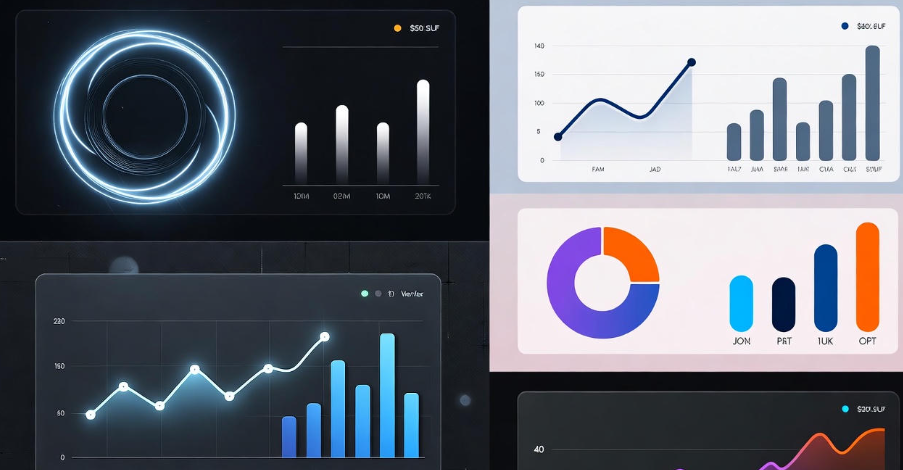Managing your personal finances can feel overwhelming, especially when you’re trying to balance saving, spending, and investing. But the truth is, budgeting doesn’t have to be complicated. The key is avoiding common mistakes that can silently eat away your money. Let’s dive into the 9 mistakes you must avoid if you want to stay financially healthy.
1. Not Tracking Your Expenses
You can’t manage what you don’t measure. Many people start a budget but never really track where their money goes. They might set limits for groceries, entertainment, and bills but forget to check if they are sticking to them.
Without tracking, overspending happens naturally, often without you noticing. Start by using a simple notebook, an Excel sheet, or budgeting apps like Mint or YNAB. Track every penny for at least a month. You’ll be shocked to see where your money really goes.
Tip: Use your phone’s camera to snap receipts—it makes tracking much easier.
2. Setting Unrealistic Budgets
Another common mistake is setting goals that are too strict or unrealistic. For example, cutting your monthly dining out from $300 to $50 might sound great on paper but can be impossible to follow.
A budget should reflect your lifestyle, not punish it. Gradually adjust spending. If you love coffee, don’t cut it entirely—just find ways to spend less elsewhere.
Example Table: Budget Reality Check
| Expense Category | Current Spending | Unrealistic Budget | Adjusted Realistic Budget |
|---|---|---|---|
| Dining Out | $250 | $50 | $150 |
| Entertainment | $100 | $20 | $60 |
| Groceries | $400 | $300 | $350 |
This small adjustment keeps you motivated rather than frustrated.
3. Ignoring Small Daily Expenses
It’s easy to forget that small, frequent purchases—like a $3 coffee or a $2 snack—can add up. These are often called “micro-leaks.” People ignore them because they seem insignificant, but they can cost hundreds monthly.
Tip: Track even the tiniest expenses. You might find you spend $150 monthly on small things you don’t really need.
4. Not Having an Emergency Fund
Life is unpredictable. Medical emergencies, car repairs, or sudden job loss can throw your budget off entirely. Yet, many skip building an emergency fund.
Ideal approach: Save at least 3–6 months of living expenses in a separate account. This acts as a safety net and reduces financial stress.
5. Forgetting to Adjust Your Budget
Your income, bills, and lifestyle change over time. A static budget that never adapts is doomed to fail.
For example, if your rent increases or you switch jobs, you need to update your budget immediately. Periodic reviews—monthly or quarterly—are essential.
Tip: Schedule a monthly “budget check-in” to tweak your numbers as needed.
6. Overestimating Future Income
Many people make the mistake of planning their spending based on expected bonuses, side hustle income, or raises. This is risky because if the income doesn’t come, you end up overspending and in debt.
Always base your budget on actual, guaranteed income. Extra earnings should be treated as a bonus for savings or debt repayment, not new spending.
7. Not Prioritizing Debt Repayment
Ignoring debt is a silent killer of budgets. High-interest debt, like credit cards, can grow fast if neglected.
Smart budgeting: Always prioritize paying off high-interest debts first. Use strategies like:
-
Avalanche method: Pay off debts with the highest interest first.
-
Snowball method: Pay off the smallest debts first for motivation.
Tip: Even small extra payments above the minimum can save hundreds in interest annually.
8. Being Too Rigid or Too Flexible
Some people are too strict and never allow themselves small pleasures, while others are too relaxed and overspend. Both extremes are harmful.
The key is balance. Allow yourself some flexibility for fun, but stay disciplined in essentials. Reward yourself for sticking to your budget—it makes financial discipline sustainable.
Example Table: Balanced Approach
| Category | Strict Budget | Flexible Approach | Recommended |
|---|---|---|---|
| Entertainment | $0 | $300 | $100 |
| Shopping | $0 | $200 | $75 |
| Eating Out | $0 | $250 | $150 |
9. Not Setting Financial Goals
Without clear goals, budgeting becomes just a list of limits. Goals give purpose to your budget.
Examples:
-
Saving for a house down payment
-
Paying off student loans
-
Building a travel fund
Tip: Break big goals into small, manageable steps. For example, saving $12,000 a year can be broken into $1,000 per month or even $250 per week.
Quick Budgeting Checklist
✅ Track every expense
✅ Set realistic budgets
✅ Avoid ignoring small costs
✅ Build an emergency fund
✅ Review and adjust monthly
✅ Base spending on actual income
✅ Prioritize debt repayment
✅ Balance discipline with flexibility
✅ Set clear financial goals

FAQs
Q1: How often should I review my budget?
A: At least once a month. Income, bills, and spending habits change, so periodic review keeps your budget accurate.
Q2: What’s the best way to track expenses?
A: Use a budgeting app, spreadsheet, or even a simple notebook. Snap photos of receipts for easy tracking.
Q3: How much should I save each month?
A: Ideally, 20% of your income. Adjust according to your financial goals and expenses.
Q4: Can I budget if I have irregular income?
A: Yes. Base your budget on your lowest expected monthly income. Treat extra money as a bonus for savings or debt repayment.
Q5: What’s the biggest budgeting mistake people make?
A: Not tracking expenses and overestimating income. You can’t manage money you don’t see or plan for money that might not come.
Budgeting doesn’t have to be stressful. By avoiding these 9 mistakes, you can take control of your finances, reduce stress, and start building wealth. Remember, it’s not about being perfect—it’s about being aware, realistic, and consistent. Start small, track everything, and celebrate each win. Your future self will thank you.




